Ever wondered what the must-read Multidisciplinary books are? Here is our take.
The reading list below contains some of the best books for multidisciplinary students.
These books offer multidisciplinary thinking to students and everyone else interested in understanding the world from a new perspective.
This list helps researchers tucked away in their daily grind develop their next breakthrough idea.
For a layperson, this helps you become a well-read lifetime learner.
Here are the books we hope will help you in your course.
Table of Contents
Best Multidisciplinary Books
- Learning to Eat Soup With a Knife [Get the book]
- The Calculus of Consent [Get the book]
- A Theory of Justice [Get the book]
- Start With Why [Get the book]
- Super Thinking [Get the book]
- The Obstacle Is the Way [Get the book]
- The Geometry of Wealth [Get the book]
- Real Artists Don’t Starve [Get the book]
- The Inner Game of Tennis [Get the book]
- Individualism and Economic Order [Get the book]
- The Three-Body Problem [Get the book]
- Meditations [Get the book]
- Seeking Wisdom [Get the book]
- The Great Mental Models Volume 1 [Get the book]
- Range: Why Generalists Triumph in a Specialized World [Get the book]
Learning to Eat Soup With a Knife: Counterinsurgency Lessons from Malaya and Vietnam by John Nagl
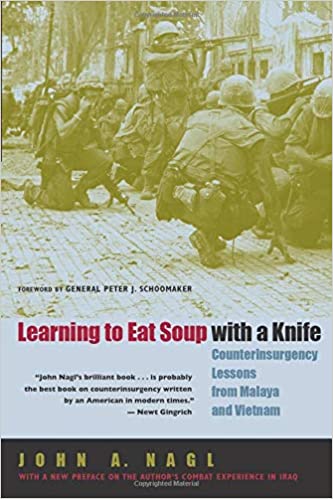
Intro-Why you should read it
Learning to Eat Soup with a Knife is an excellent introduction to students interested in military, intelligence, and defense work.
Summary-What this book is about
Nagl provides a fascinating look into the world of military strategy and decision-making.
John Nagl also examines why what works in business and sports doesn’t necessarily translate to military tactics.
Key Takeaways
- Don’t be afraid to use military history to evaluate strategy and learn how to apply it in your life and work.
- The U.S. military must invest in education and training, creating soldiers who are better prepared to think critically and creatively under pressure rather than simply following orders.
The Calculus of Consent by James Buchanan
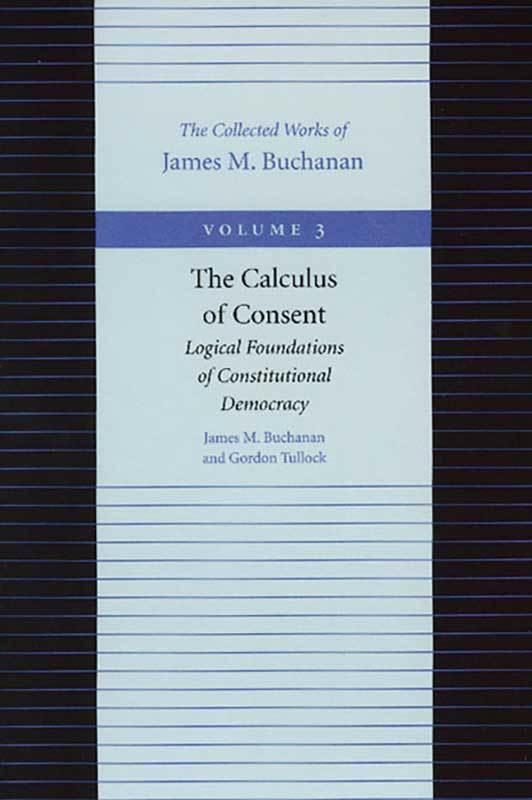
Intro-Why you should read it
This book offers insights into the economic analysis of political constitutions and the democratic process.
Summary-What this book is about
The book begins with a high-level analysis of collective decision-making under conditions of unanimity.
Then the authors deepen their analysis by introducing the concepts of majority voting and exploring its mapping to an underlying Pareto efficient outcome.
Key Takeaways
- This book uses a series of compelling examples to illustrate how politicians misuse public opinions.
- Politicians often have incentives to make decisions that are actually bad for their constituents because it benefits them personally.
A Theory of Justice by John Rawls
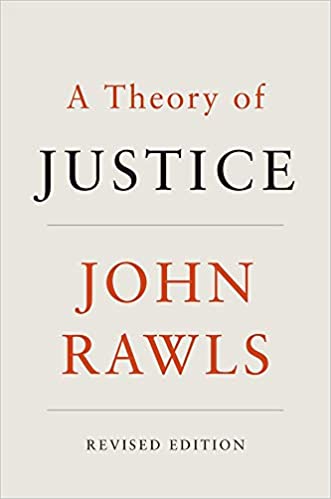
Intro-Why you should read it
This edition addresses the major objections raised against his theory and features a new preface.
Summary-What this book is about
In A Theory of Justice, Rawls argues that the concepts of freedom and equality are not mutually exclusive.
His theory combines traditional American rights with modern economic resources to create a society more equal than previous egalitarian theories.
Key Takeaways
- Each person has an equal right to basic liberties such as freedom of speech and religious practice.
- People are free to pursue their own interests as long as they do not interfere with the freedoms or opportunities of others. You should think of the bigger picture before engaging in anything.
Start With Why: How Great Leaders Inspire Everyone To Take Action by Simon Sinek

Intro-Why you should read it
Start With Why seeks to answer the age-old question of How? by defining one’s “Why?”
By doing this, Simon Sinek suggests you focus on why you want to do something instead of just what you want to do.
Summary-What this book is about
Start With Why emphasizes the importance of finding meaning in your work and practicing empathy to understand others’ motivations.
The book will offer you the core concepts that will transform your business strategy, personal leadership style, or even change a group’s culture.
Key Takeaways
- We are wired to understand and respond to why things happen as human beings. Sinek calls this our “biological imperative,” and says it’s a critical part of survival.
- Other people don’t buy what you do; they buy why you do it.
Super Thinking: The Big Book of Mental Models by Gabriel Weinberg and Lauren McCann
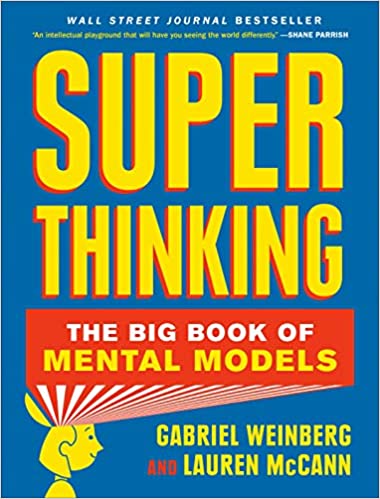
Intro-Why you should read it
Super Thinking: The Big Book of Mental Models is the essential guide to bringing intellectual firepower to bear on your most complex challenges.
Whether you’re a leader, entrepreneur, or innovator who needs to solve problems and make smarter decisions, this book is for you.
Summary-What this book is about
This book reveals the key mental models you need to be an effective decision-maker in any complex situation.
Key Takeaways
- Super Thinking teaches readers how to think more effectively by harnessing the most powerful thinking tools that currently exist.
- We tend to focus on the big decisions, but there are many small decisions that make a big impact. You should be aware of these and create guiding principles for them.
The Obstacle Is the Way: The Timeless Art of Turning Trials into Triumph by Ryan Holiday
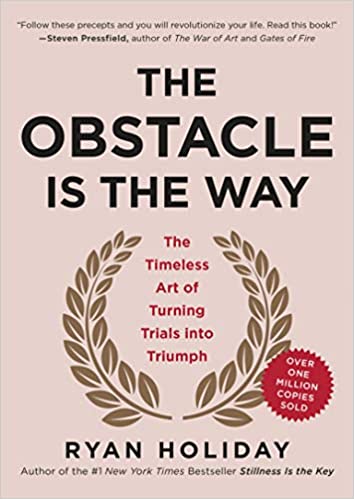
Intro-Why you should read it
The Obstacle is the Way is a book that offers more information on how to face and overcome challenges in life.
I must have read and re-read 3 times of this book whenever I feel stressed about a difficult situation.
Summary-What this book is about
This book explores how to discover the strength within yourself to become a better version of yourself by taking on hard obstacles.
The Obstacle Is the Way draws on timeless stoic principles to show you how to live a better life.
Key Takeaways
- Life is not about winning or losing, but about perseverance and self-control.
- This book outlines the relationship between what is in your control and what is not.
- The author uses real-life anecdotes that will inspire you to keep going when things get tough.
- The Obstacle Is the Way shows you how to start living with purpose.
The Geometry of Wealth by Brian Portnoy

Intro-Why you should read it
This book contains essential tools and concepts in economics, accounting, and finance that you may need to achieve maximum success in your course.
Summary-What this book is about
With witty anecdotes, concrete examples, and “math-lite” explanations, Brian Portnoy demystifies the world of investing.
Key Takeaways
- The Geometry of Wealth guides you to making smart investment choices that will result in more money on your way to financial success.
- Brian offers a valuable insight that will help you make sense of today’s market reality and its potential impact on your business.
Real Artists Don’t Starve: Timeless Strategies for Thriving in the New Creative Age by Jeff Goins
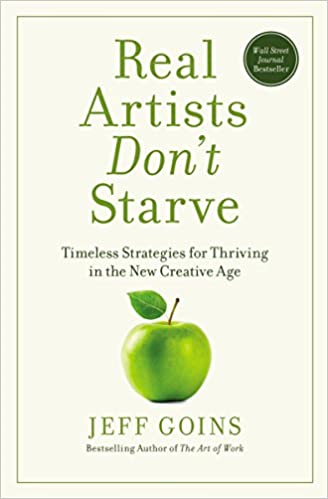
Intro-Why you should read it
From the New York Times, best-selling author of The Art of Work comes a book on the modern artist.
The book cuts through today’s noise to answer one question: How can I find success with my art?
Summary-What this book is about
This revolutionary guidebook blends both practical and inspirational advice to offer a game plan to aspiring artists.
Jeff Goins knows that art is more than a paycheck – it’s a way of life.
Key Takeaways
- The author outlines a roadmap to help everyday creatives break free from the 9-5 world and live their passions.
- Artists should embrace failure and use it as a learning experience.
- If you’re struggling with your creativity, try taking time to do something else—like exercise or go on vacation—before coming back fresh and ready for a new project.
The Inner Game of Tennis: The Classic Guide to the Mental Side of Peak Performance by Timothy Galley
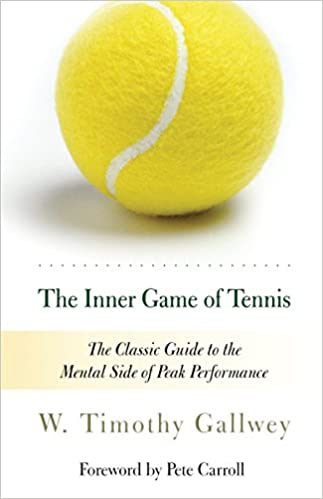
Intro-Why you should read it
This book reviews how you can defeat your mental opponents, including anxiety, self-doubt, and hesitation to live a happy life.
You will also learn to find the state of “relaxed concentration” in which you perform your best—no matter what the conditions.
Summary-What this book is about
Timothy Galley describes how you can become the type of player who can play and win under any circumstance.
Key Takeaways
- This book is like a personal coach—a way to improve your performance in any endeavor.
- Tim Gallwey’s “Inner Game” concept will offer you a multidisciplinary approach to the world.
Individualism and Economic Order by Friedrich Hayek
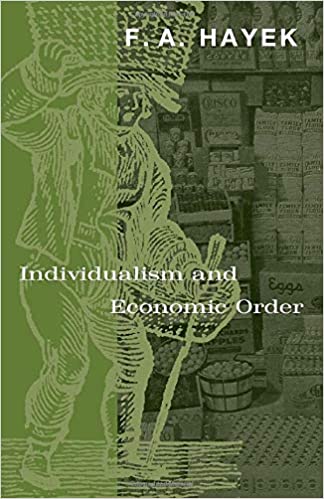
Intro-Why you should read it
Individualism and Economic Order by Friedrich Hayek assess how personal economic freedom relates to history and government.
Summary-What this book is about
As true today as when originally published, this book offers key insights into the functioning of a market economy.
The book places Hayek’s work in context and discusses its impact on contemporary economics.
Key Takeaways
- Self-awareness is crucial to your success.
- The key to success is having an open mind and being willing to change your perspective. Invest in an intelligent decision-making process.
The Three-Body Problem by Cixin Liu

Intro-Why you should read it
The Three-Body Problem is a standalone novel from the celebrated author of science fiction novels, Cixin Liu.
This great resource was a New York Times bestseller and has become an international sensation.
Summary-What this book is about
Cixin Liu authored a mind-bending mystery that spans multiple worlds and civilizations.
The Three Body Problem is an award-winning novel that explores the consequences of humanity’s first contact with a civilization from another planet.
Key Takeaways
- We must act now to save ourselves before it’s too late. Humanity has a choice: either become extinct like all other intelligent life or choose not to be extinct like all other intelligent life.
- When faced with adversity, we can’t always rely on those closest to us for support or comfort; sometimes, it’s necessary to turn inward and seek solace within ourselves instead.
Meditations by Marcus Aurelius
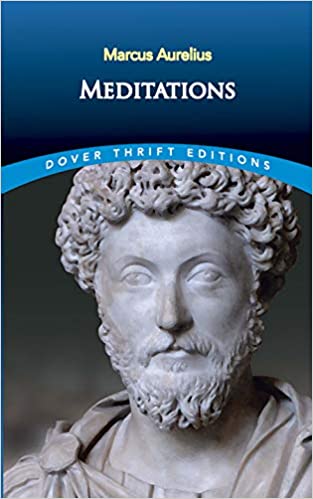
Intro-Why you should read it
Meditations by Marcus Aurelius is an ancient book about stoic philosophy and personal development.
Summary-What this book is about
Meditations is a collection of sayings that is widely regarded as one of the best works of Stoicism.
The book focuses on self-improvement and personal reflection.
Key Takeaways
- Choose what you do, not what you want (or don’t want).
- Control your emotions, or they’ll control you.
Seeking Wisdom: From Darwin to Munger by Peter Bevelin
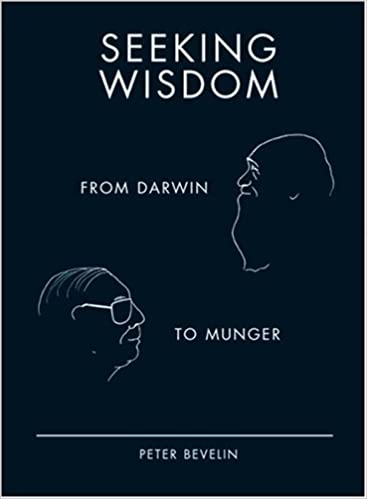
Intro-Why you should read it
Seeking Wisdom is a delightful book, offering sound bites of wisdom and wit on a variety of topics.
Summary-What this book is about
Peter Bevelin’s book features insights of the greatest investors, including Warren Buffett, Benjamin Graham, and Charlie Munger.
Key Takeaways
- This anthology brings together some of Peter Bevelin’s most valued essays on attaining wisdom.
- You must think for yourself, be skeptical, and question everything.
The Great Mental Models Volume 1: General Thinking Concepts by Shane Parrish
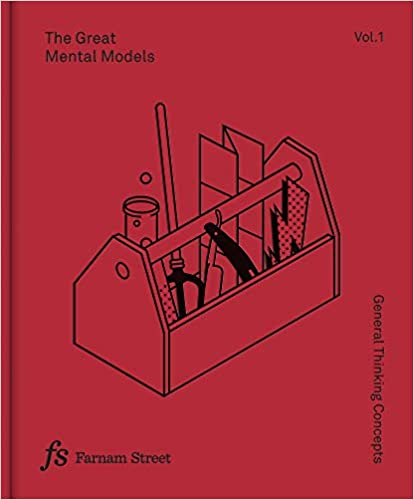
Intro-Why you should read it
The Great Mental Models is one of the best books for university students because of its framework for enhancing critical thinking.
Summary-What this book is about
The book introduces you to high-level concepts that you can apply in different areas such as business, finance, physics, and science.
The Great Mental Models provide a common language for discussing and thinking about these models.
Key Takeaways
- Understanding how each mental model works is a good practice.
- Smartly apply these models in daily life, work, or new challenges.
Range: Why Generalists Triumph in a Specialized World by David Epstein
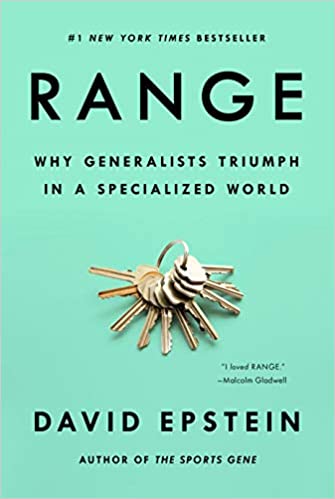
Intro-Why you should read it
This book is perfect for anyone who is looking to make a living out of anything and everything.
Summary-What this book is about
The main idea behind the book is that generalists tend to be more successful than their specialist counterparts.
David Epstein develop his primary idea by arguing that generalists have a wider toolset, allowing them to tackle problems,
Key Takeaways
- Generalists outperform specialists in many areas of life, including business and education.
- We need not only breadth of knowledge but also depth if we want to succeed in any given area of expertise.
Conclusion
Reading is one of the many ways to learn a concept.
We’ve written this list of 15 must-read multidisciplinary books with the intent to inspire students at the individual level in your learning process.
These books will offer you a multidisciplinary approach to nature.
They cover different disciplines, including history, social sciences, art, science, culture, and emotional intelligence.
We hope this article was helpful.


